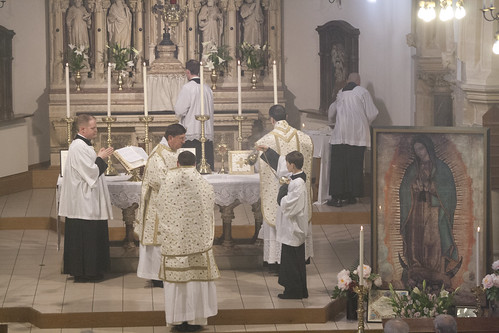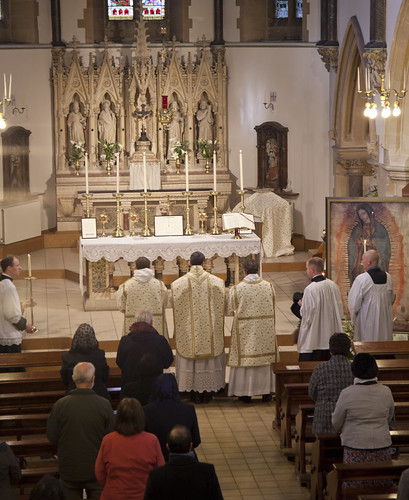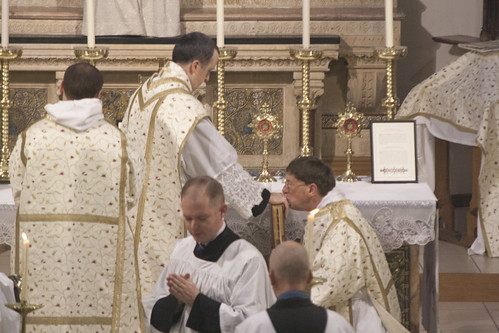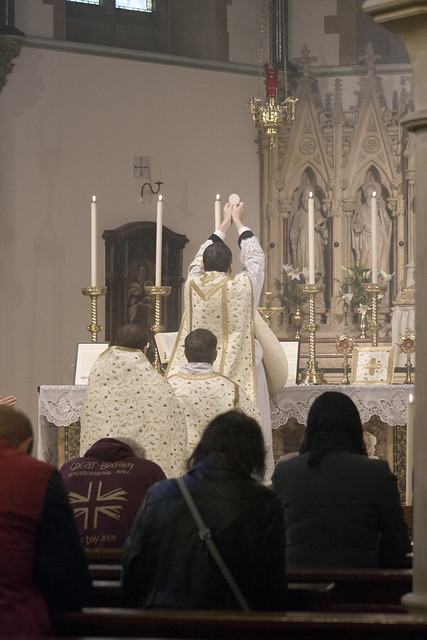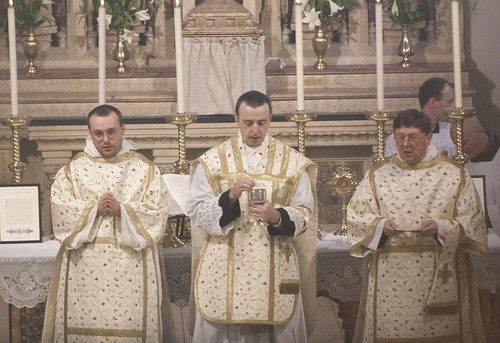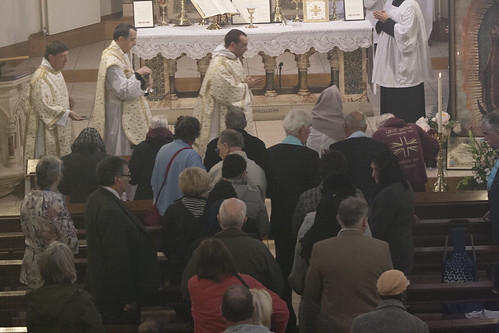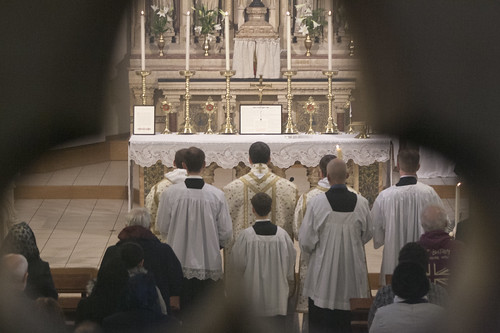Chairman's Blog
Should Catholics be free-speech absolutists?
Me on LifeSite News: a key section.
Since people on the “progressive” side of the debate generally need not fear exclusion from social media and public spaces, they usually do not need to make such appeals, so this appeal to free speech is becoming increasingly associated only with the defense of conservative voices. We now hear from liberals that the principle of free speech is being “weaponized,” a rhetorical preparation for saying that the principle should be rejected, as the latest Google memo comes close to doing.
This is quite a turn-around from the depiction of the Catholic Church as the opponent of liberty, and the historic attempts to undermine the Church’s institutions and influence by scurrilous pamphleteering: characteristic tactics of the Church’s opponents since the time of Luther. In response to this kind of activity, Popes down the ages remind us that freedom of expression is not an absolute right. Typical was Pope Pius IX, who had the Papal States to administer as well as the Universal Church, and who wrote in 1864 (Quanta cura) of “that erroneous opinion”
that a right resides in the citizens to an absolute liberty, which should be restrained by no authority whether ecclesiastical or civil, whereby they may be able openly and publicly to manifest and declare any of their ideas whatever, either by word of mouth, by the press, or in any other way.
Read it all there.
Honouring our war dead
Me on LifeSite News. A key paragraph:
There are inevitably those who are uncomfortable with the commemoration of the war dead, the commonest complaint being that it ‘glorifies war’. This seems a curious reaction to the ritualized expression of public grief, but it contains this grain of truth: the laying of wreaths and the parading of soldiers does not merely remember the dead: it honors them. If one takes the view that all war is evil, then this is no more appropriate than publicly honoring a roll-call of mass-murderers.
Catholics funerals must beseech God's mercy
Me on LifeSite News: a sample paragraph.
But the meaning of the words is only one aspect of the listener’s experience of these chants. Gregorian Chant is remarkable for expressing emotion without manipulating the hearer: it doesn’t twang on the heartstrings with euphoric or lacrimose cords, but expresses joy and sorrow in a way at once authentic, dignified, and restrained. Equally striking, with the chants for the dead, is their powerfully insistent tone, especially evident in the Dies irae. There is no need to speak at length about despair, but there is need to spend time begging God’s mercy, because God is pleased to grant it at our insistence, if we insist with a confidence that does not tip over into presumption.
LMS Bedford Pilgrimage: photos
St Joseph's is a fine church which has survived the liturgical reform pretty well. The LMS' Mass was well-attended, with 86 (I am told) present. There is a regular Sunday EF Mass celebrated in the next parish, Christ the King, served by the FSSP. The regular celebrant of that Mass, Fr Patrick O'Donohue FSSP, was the celebrant of this High Mass.
He was assisted by Fr Michael Cullina as deacon and Br Albert Robertson OP from Oxford as subdeacon. Servers came from a wide area; a small chant schola was led by Matthew Schellhorn.
This being the first Mass of its kind we faced a number of practical obstacles, but it all came together and I hope the Pilgrimage in honour of Our Lady of Guadalupe will be a regular fixture in future years.
Many thanks to the indefatigable local LMS Representative, Barbara Kay, the Parish Priest who welcomed us, Canon Seamus Keenan, and the shrine 'Guardians' who looked after us.
Support the Latin Mass Society
Newman Colloquium: with Fr Jeremy Davies, Exorcist
As last time, 3:45pm in the parish hall at SS Gregory & Augustine's in Oxford.
The booking page is here.
Witchcraft and the Occult
My latest at LifeSite News begins as follow:
Following the confirmation of Brett Kavanaugh as a Supreme Court judge, an occult book shop in New York hosted his mass-“hexing”: people identifying as witches gathered to curse him. They had earlier done the same thing to President Trump. Reading such stories in reputable news sources like the BBC brings to mind G.K. Chesterton’s remark:
When men choose not to believe in God, they do not thereafter believe in nothing, they then become capable of believing in anything.
As LifeSiteNews has reported, however, self-described witchcraft has grown to the level which is no longer simply a joke. It is important to keep three points in mind about it. First, the claims of today’s occultists and witches to some historical continuity with European paganism are completely deluded. Secondly, it is nevertheless spiritually dangerous. Thirdly, Catholicism is the form of religion it most detests, and also the form which can most help its adherents.
Masses for Remembrance Sunday in the UK
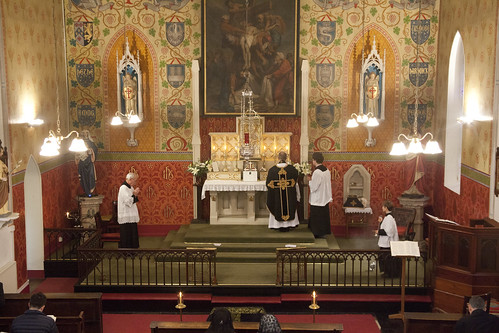 |
| Mass for Remembrance Sunday at Holy Trinity Hethe inn 2015 |
This Sunday is Remebrance Sunday in the UK, and wherever the Traditional Mass is celebrated here it will be a Mass of Requiem. Readers should seek out a Sung Mass if possible to experience this to best effect, and unite themselves to the prayers of the Church for those who have died in war.
A few to mention - there are many more:
St Bede's, Clapham Park: as always there will be a Sung Mass at 11am
Address: 8 Thornton Rd, London SW12 0LF (click for a map)
Holy Trinity Hethe will have a Sung Mass at 12 noon this Sunday. Holy Trinity is distinguished, among other ways, by having war graves in its cemetery.
Address: Hardwick Rd, Hethe, Bicester OX27 8AW (click for a map)
St Walburge's, Preston, which is served by the Institute of Christ the King, will see a High Mass at the special war memorial altar, at 10:30am.
Address: Weston St, Preston PR2 2QE (click for a map)
St William of York, Reading, served by the Fraternity of St Peter: Sung Mass at 11am
Address: 46 Upper Redlands Rd, Reading RG1 5JP (click for a map)
Pilgrimage to Stirling, Scotland, 30th November
Support the work of the LMS by becoming an 'Anniversary Supporter'.
Good Counsel Network Ball, 10th Nov
See the Facebook event page.
Support the work of the LMS by becoming an 'Anniversary Supporter'.
Mass of Reparation in Bedford: this Saturday, 12 noon
A High Mass will take place in Bedford's Shrine to Our Lady of Guadalupe this Saturday at 12 noon: St Joseph's Church, MK40 1HU
This is the first LMS Pilgrimage to this shrine, which houses one of the official copies of the famous image of Our Lady of Guadalupe.
Support the work of the LMS by becoming an 'Anniversary Supporter'.

